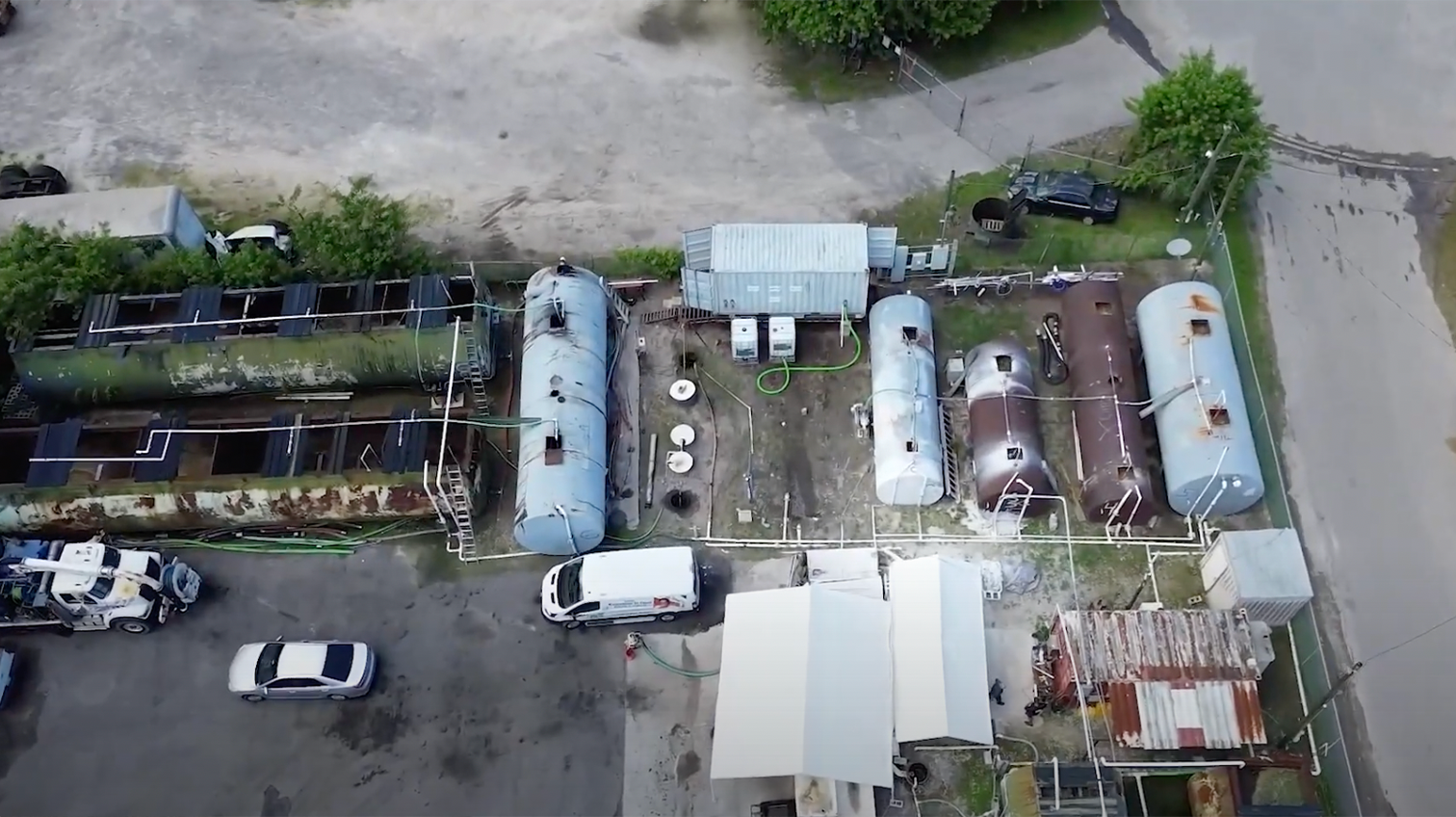We’re improving the treatment of septic wastewater at a site in Orlando, Florida with our pilot project that uses a greener, more cost-effective technology. Our pioneering technology address two significant issues: ineffective septic water treatment and a pressing need for improved water disposal. The introduction of this novel approach will not only provide a sustainable and scalable water-treatment solution but will also be the first project of its kind to produce on-chain water credits. The initial environmental benefits for this project are estimated at 69,000 m3 annual freshwater production and a carbon avoidance of 892 mtCO2 per year.
Project Overview
Current septic water treatment methods struggle with semisolid separation and the disposal of treated water. At the septic waste disposal facility in Florida, the septic wastewater is treated with lime before it is shipped 60 miles and sprayed on agricultural fields in a neighbouring state with less restrictive water polices. The transport of this water produces excess carbon emissions, and the water degrades the field’s soil, adversely affecting agriculture.
A Sustainable Solution
Our partner, NOAH Solutions, is a leading player in water treatment technology. NOAH’s dehumidification system fits in a 40×40 foot container unit and can process an impressive 150,000 gallons of water per day. Allowing for 100% of the septic wastewater to be treated on site. By adopting this technology, 92% of treated water (with PPM below 70) will be fit for reintroduction into Florida’s public water system.
This eliminates the transport need, reduces harmful mineral seepage into agricultural land, and offers a viable solution for the remaining 8% of solid waste, which after sterilization, is suitable as fertilizer.
Conceptualizing Water Credit Generation
Emerging from this initiative is the concept of Water Credits. With the collaboration between WaterDAO, who verifies the credits, and ecoToken, who oversees the project management, the water credit methodology classifies water into three tiers:
- Potable Water: Meeting consumption standards with total dissolved solids (TDS) less than 400 ppm.
- Agriculture: Suitable for farming, with TDS under 700 ppm.
- Industrial: Water of any TDS with a pre-approved buyer or application.
Water credits are issued on the Regen Ledger when healthy water is added to the local supply. The different tiers indicate what the treated water can be used for. The quality of the water is verified using a special grading system that looks at how healthy the water is and the applications for the treated water. Qualified experts from the WaterDAO are responsible for grading the water. They are selected based on qualifications and their proximity to where the water is treated.
Each Water Credit proves that the treated water is extra – that it wouldn’t have been added to the local water system without treatment. It shows that the water is healthier than before, it’s being reused and recycled locally, and there is a detailed report on how the water treatment helps the local water supply.
A Water Credit can exist in two states: active and retired. An active credit can be transferred, traded, or sold. Once it’s used to offset water, it becomes retired. Meaning, it cannot be used again, and its details are saved on Regen’s ledger. Water credits will be tokenized via the Regen Network operating in the COSMOS ecosystem, with both Regen and WaterDAO certifying them. The importance of blockchain in this equation cannot be overstated. Housing this data on-chain ensures that it remains tamper-proof, trustworthy, and verifiable. Furthermore, it promises finality, eliminating the possibility of double counting and allowing for a retirement transaction on Regen.
Environmental Milestones
Among the chief environmental benefits of this pilot project are:
- Air Quality: An avoidance in carbon emissions, estimated to reduce 800 tonnes of carbon per year.
- Water Quality: Remediation of septic water, reduction in TDS, sterilization of the water.
- Healthy Soils: Soil enrichment through added nutrients, phosphorus reduction, and removal of heavy metals, pathogens, and other pollutants.
The collaboration with our partners, NOAH Solutions and WaterDAO, has created more than just a pilot project. It’s an aspiration for a future where water can be made healthy, reclaimed, and bolster local water supplies. The technology and innovation behind the pilot make sustainability for water treatment and water credit generation scalable. We are proud to be working on a water remediation project that combines human ingenuity and a commitment to a greener future.
